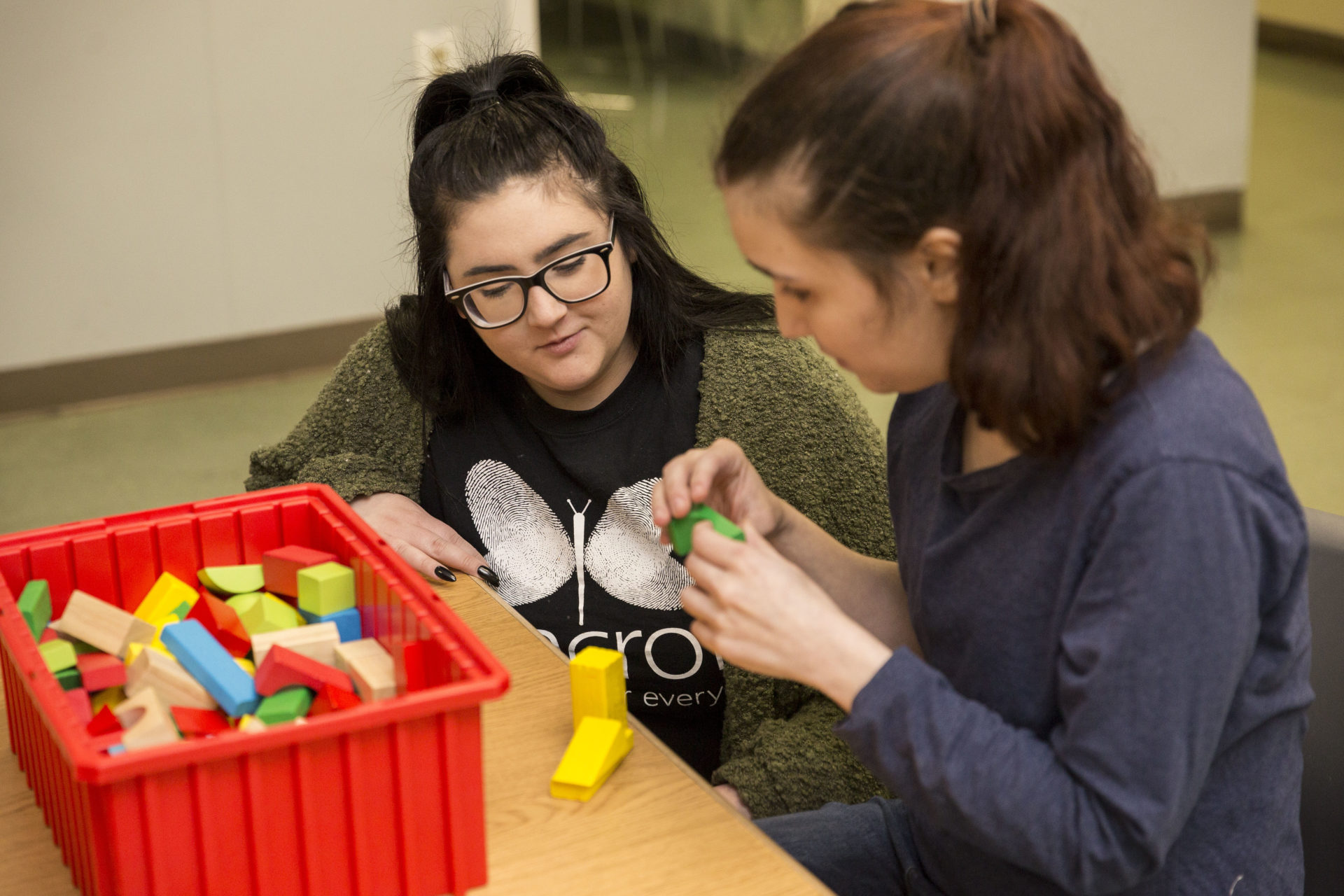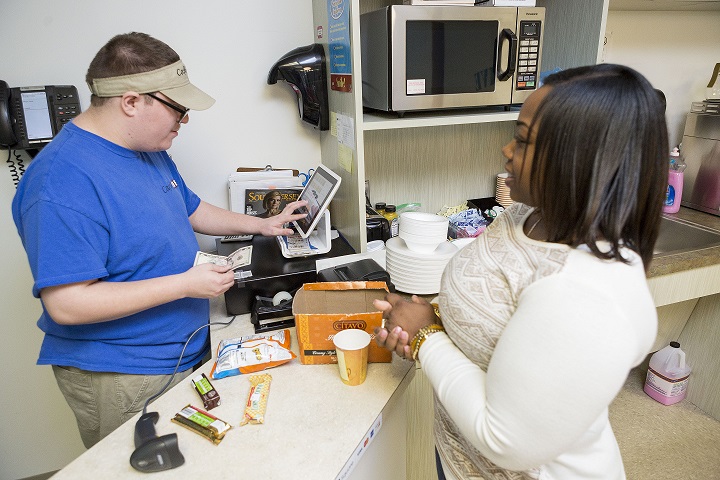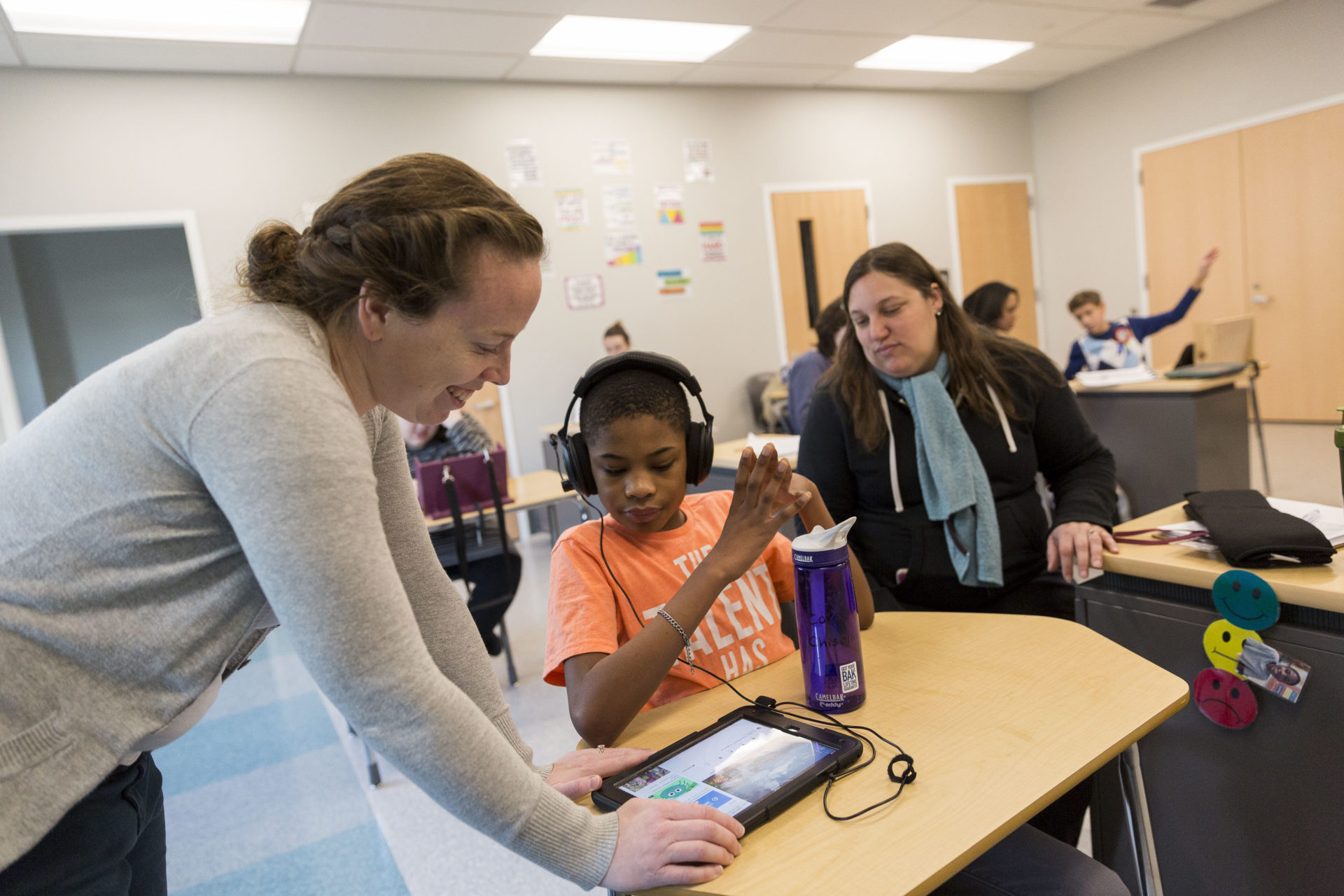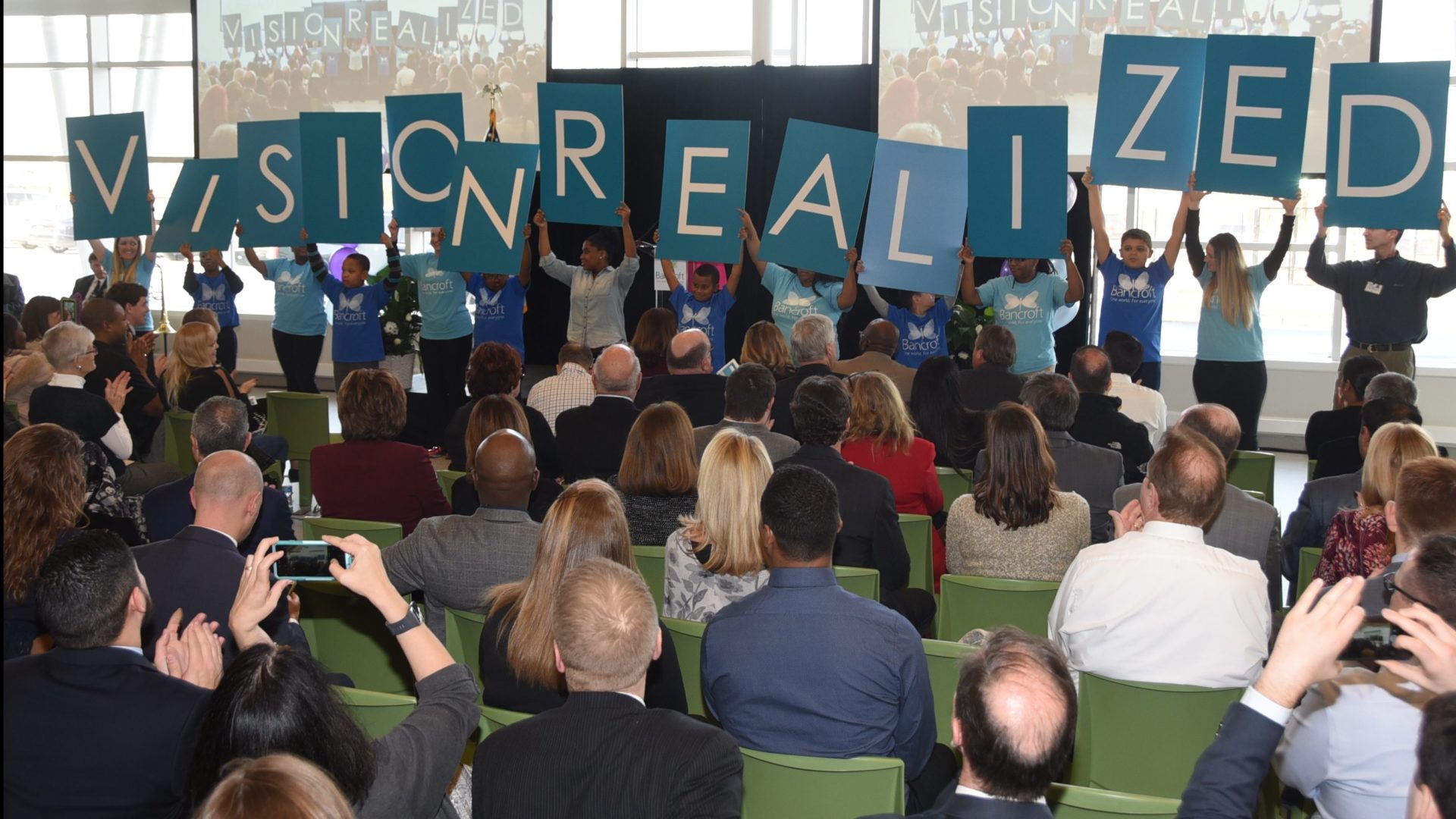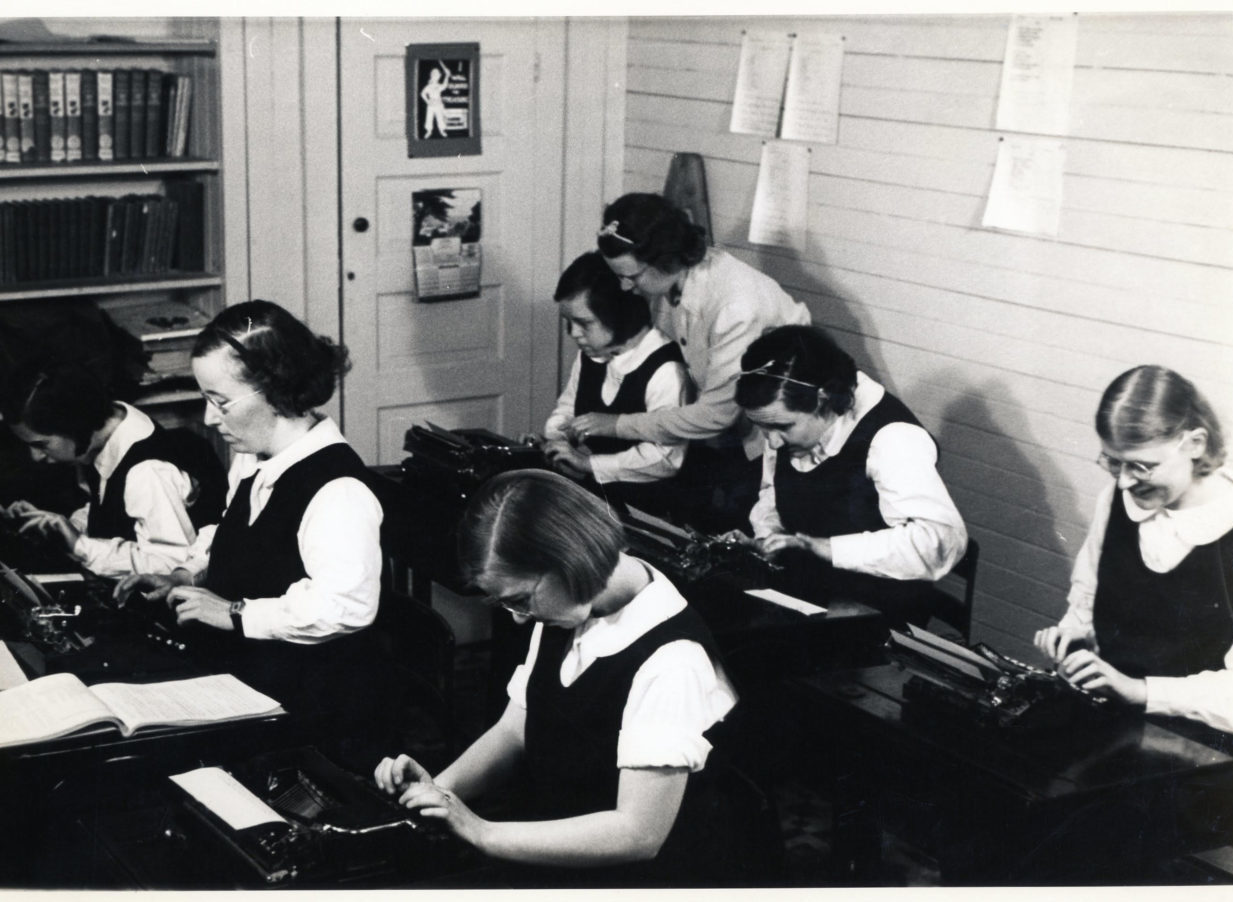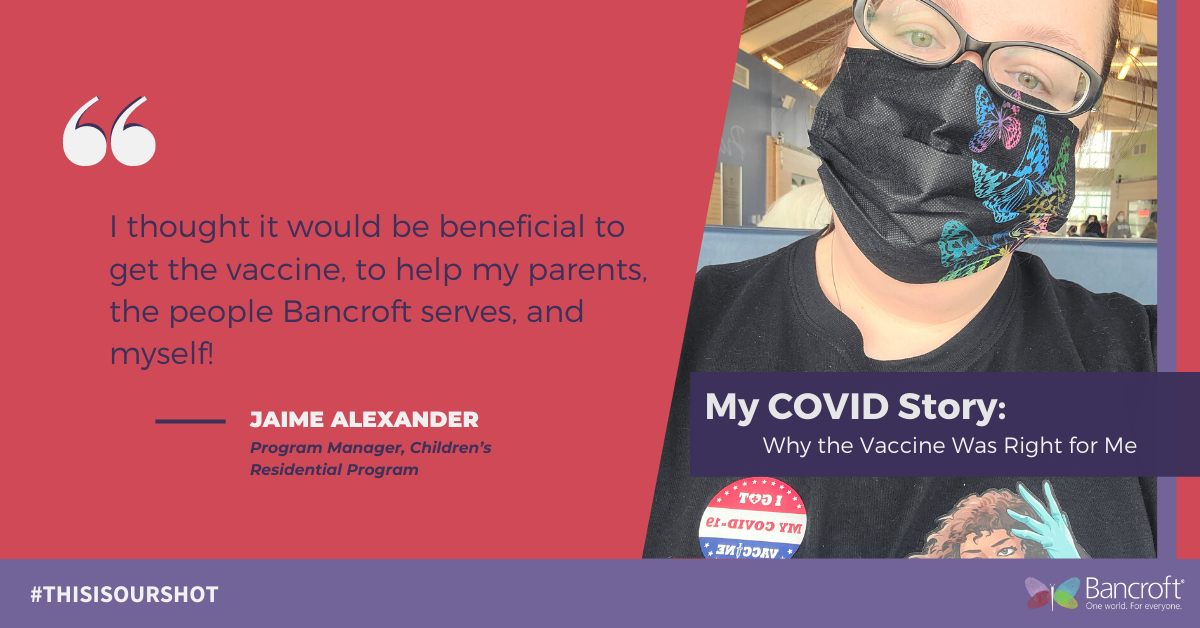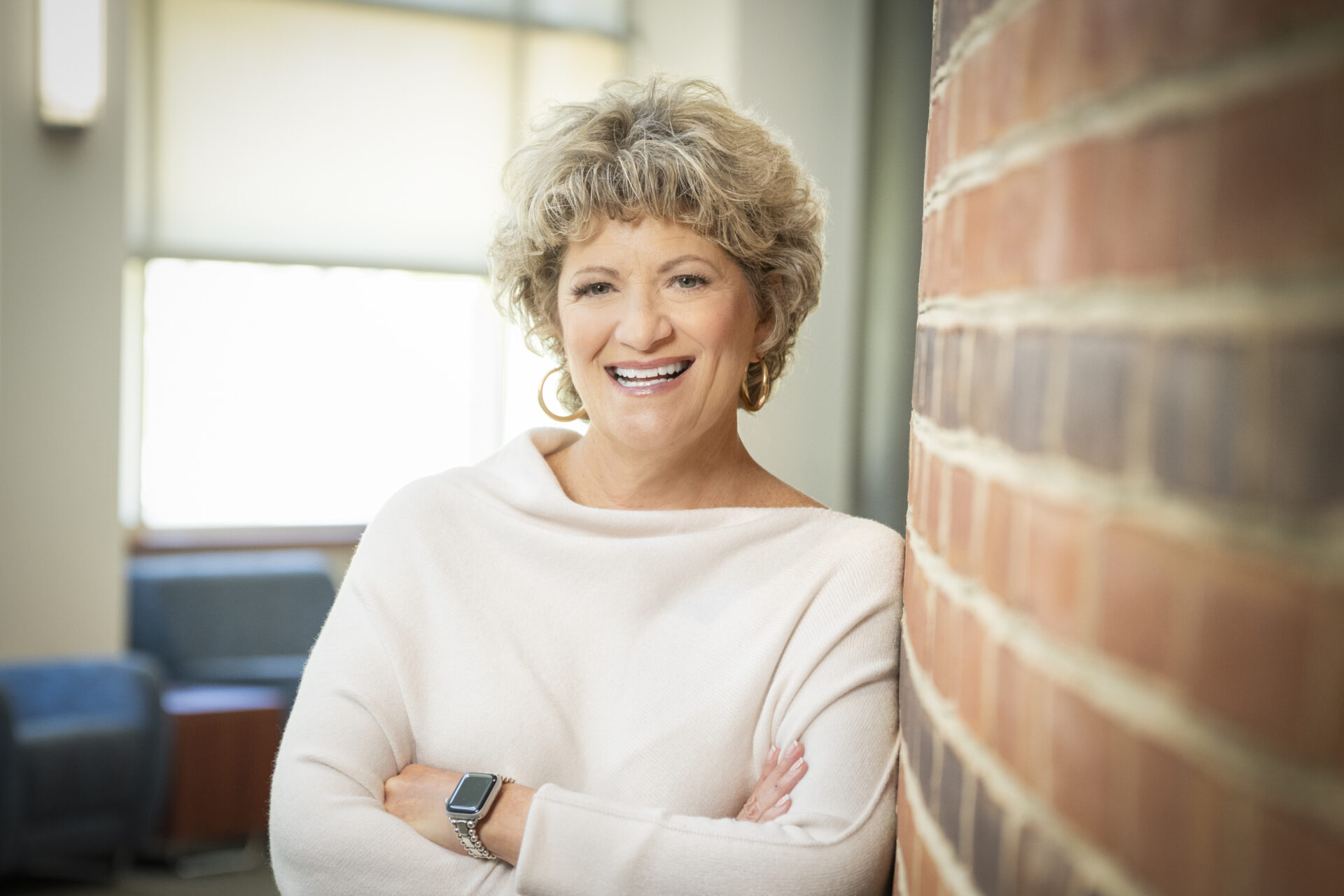By Jaime Alexander
Program Manager, Children’s Residential Program
I got really sick in December 2019, before COVID became a major headline. I had chills, fevers, a cough and breathing problems — in addition to the mental impact of being stuck home, sick and unsure of what was wrong with me.
Doctors had no idea why I was so sick; they ran multiple tests, including three flu tests that all came back negative. We only found out months later, when I had antibody testing done, that what I had was, in fact, COVID-19.
It affected both my body and my mind, and I wouldn’t wish it on anyone.
Having had COVID, I can tell you: It is a constant struggle. For a person like me who’s always on the go, being out of commission, out of work, and unable to do the things I enjoy for more than a week was awful.
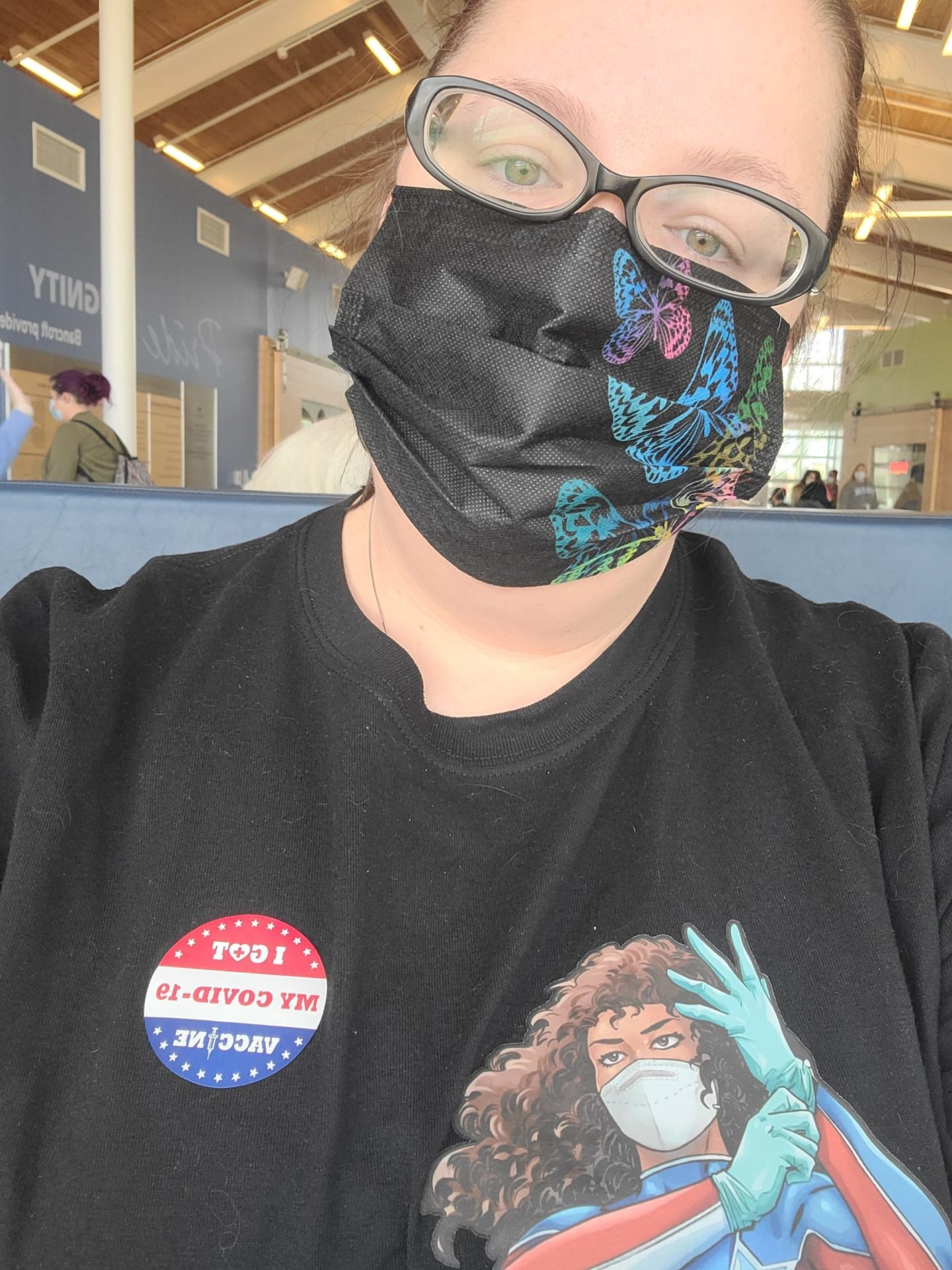
Despite all of that — when it was my turn to sign up for the COVID vaccine, it still wasn’t an easy choice to make. I had questions — and felt I needed to arm myself with research and information before I could decide what was right for me.
Here are a few of the questions I had – along with what I learned, and what ultimately helped me decide to get vaccinated at the Welsh Campus last month.
- Am I going to get sick again if I get the vaccine? The first dose may result in a sore arm, low-grade fever or other minor symptoms within the first 24 hours, but you cannot get COVID from the vaccine.
- Will it affect other medications I’m currently taking? I looked into the specific medications I’m taking and felt comfortable getting the vaccine without the potential for drug interactions. If you have a similar concern, speak to your doctor or healthcare provider about your unique situation.
- What about my allergies? When you get the vaccine, you’ll be asked to wait in an observation room for about 15 minutes, to make sure you don’t experience any adverse reactions. Again: If you are concerned about allergies you have, or allergic reactions you’ve had to previous vaccines, talk to your doctor.
- It’s so new — I want to wait and see how other people react. I’m not the only person saying this, and hesitancy around any new vaccine or drug is normal. Do your homework and research from reputable, trustworthy sources. The pharmaceutical companies producing the vaccines have published their research around them, and the nursing staff here at Bancroft are always willing to answer questions to the best of their ability.
After all my questions and concerns, my deciding factor — what made me say YES — was my parents, who recently moved in with me. I also wanted it as an added layer of protection at work: to protect my colleagues and the people Bancroft serves.
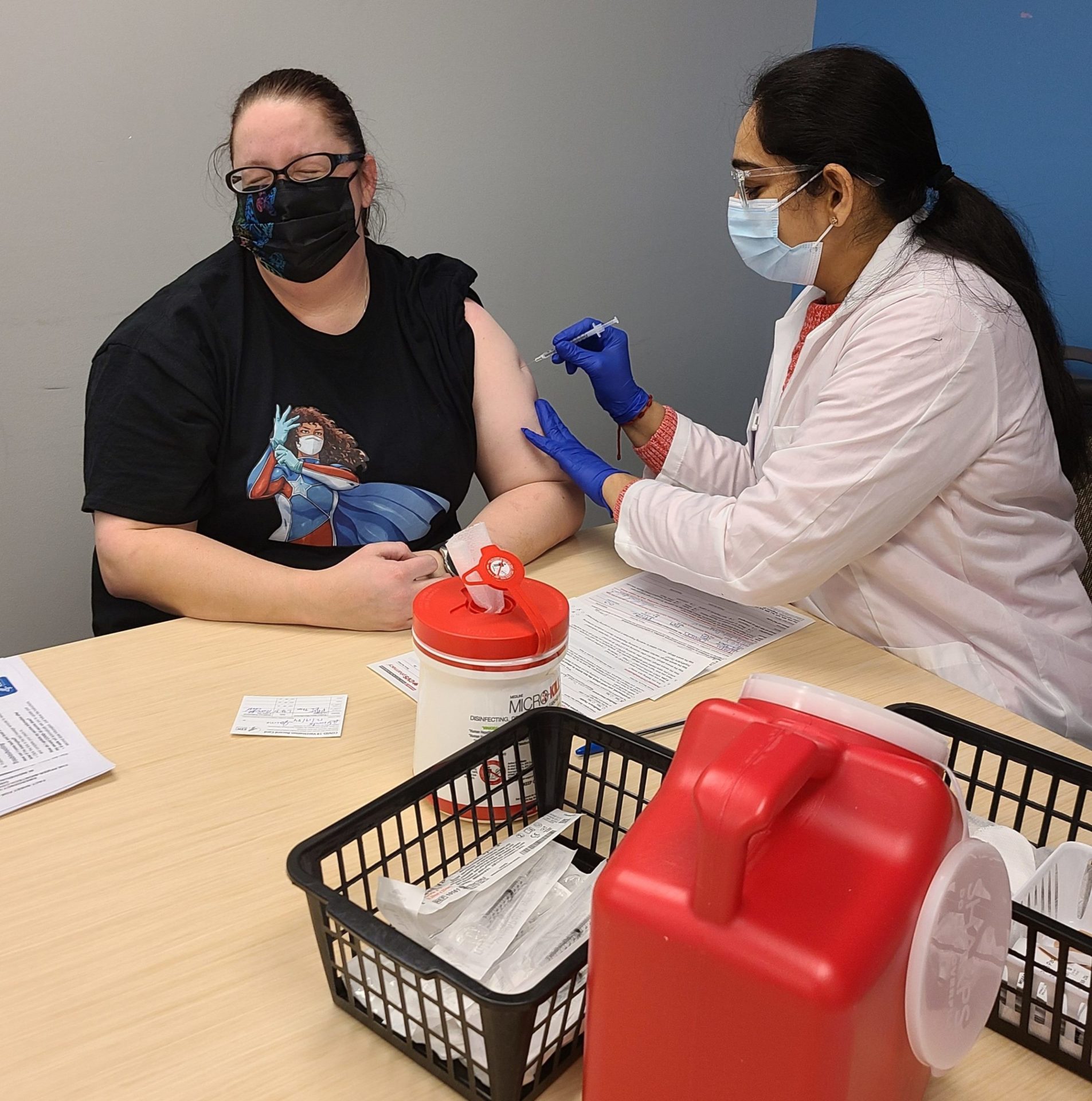
Here is the thing: This vaccine is going to help us, just like the flu shot does — but it’s not a cure for the virus. Even just like I can still get the flu even after I’ve gotten a flu vaccine, there’s a small chance that you can still catch COVID after being vaccinated. But: being vaccinated will reduce the amount of time you’re sick — and the severity of your symptoms.
Only you can decide what’s best for you — but I, for one, am happy to be vaccinated, and grateful to have had the opportunity so quickly, so that I never have to relive COVID.
View Bancroft’s COVID-19 updates here.




